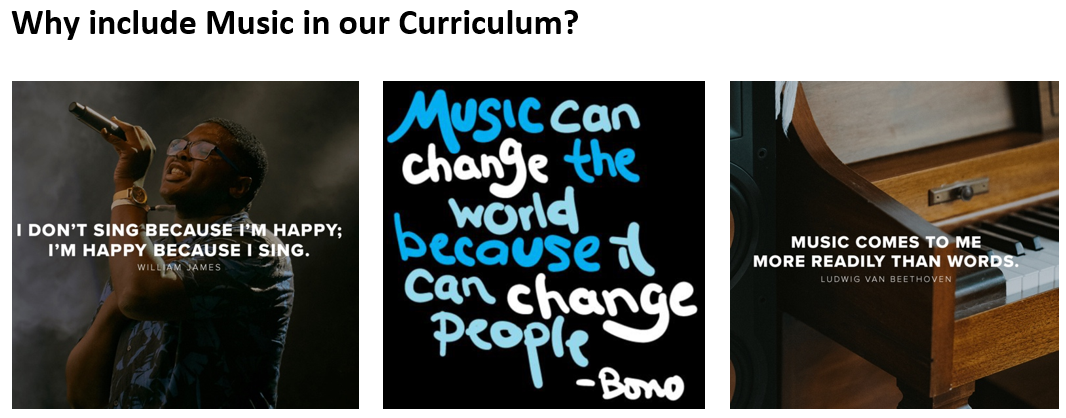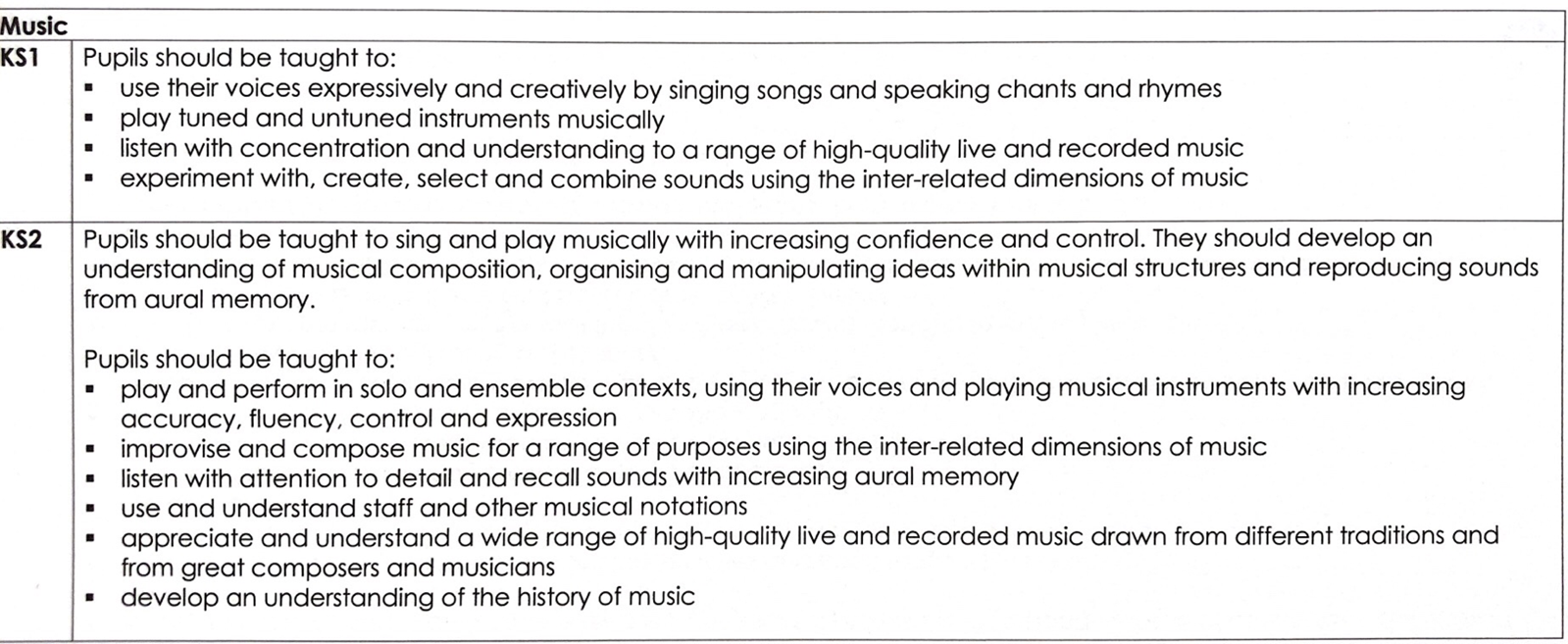Music

Music is really important to us at ERA and we have 2 full time music specialists as well as a range of visiting peripatetic teachers and a dedicated practce room.
Wellbeing & Mental Health
- Performing music can raise self-confidence and self-esteem; it is a subject that gives immediate feedback and can therefore encourage independent practice and intrinsic motivation to learn and improve. Experiencing the cycle of mistakes, practice, improvements, accomplishments can be a fantastic way for children to develop growth mindset which they can then apply in different subject contexts.
- It can give children a sense of accomplishment and satisfaction that is not necessarily linked to achievement in English and Maths; a wide range of children are able to succeed in music. Children who find core subjects more challenging can often find strength and enjoyment in music and this gives balance in the curriculum.
- Performing and/or listening to music can provide a really strong sense of personal identity.
Social Skills & Development
- Music is a social subject. In order for classroom performances to work, children have to be aware of their peers and ‘tune in’ to their social surroundings.
- For a performance to work, everyone needs to be supported to play their part; music encourages a sense of team.
- Because of the nature of music, the subject lends itself very well to group performances and compositions. Music is something to be shared.
Place & Time
- Music has been performed and composed through the ages and in every part of the globe where humans have settled. This can help children understand wide cross-subject links to do with historical development, geographical location and music more.
Culture & Diversity
- Music reflects the way people think and feel. It gives children opportunities to explore different traditions and celebrate different identities and the way they are expressed. It gives children opportunity to celebrate their own culture and traditions. Music can also be a form of protest and political engagement.
When is music taught at ERA?
- At KS2, each music unit is half a term in length and children have a music lesson each week. Music units occur in every other half term.
- Children in LKS2 have a group trumpet lesson, taught by a music professional where they work towards the same disciplinary knowledge but through learning a specific instrument. Our aim is for every ERA learner to be able to play an instrument to at least grade 1 standard before they transition to KS3.
- At EYFS & KS1, each music unit is half a term in length and children have a music lesson each week. Music units occur in every other half term. EYFS & KS1 have less timetabled music because many of their singing objectives are covered in cross-curriculum singing and our weekly singing assemblies. We also have an additional focus on the core area of Reading in EYFS and KS1.
- We have a weekly 20min singing assembly each week for children to learn to sing as a whole school. These are led by a music specialist.
- We have a ‘Track of the week’, which is launched every Monday morning and plays in every classroom during early morning activities at the start of the school day. This gives children opportunities to hear and talk about a range of genres and composers from different times, locations and traditions.
How is the curriculum covered?
We have based our Music Curriculum on the National curriculum. The National curriculum objectives are as follows:

From this we have developed a set of progressive objectives [see music progression document] for each class (Infants, Lower Juniors and upper juniors). The objectives set out what children should know, understand and be able to do by the time they move to the next class.
Our objectives are set out in 3 strands:

These strands run throughout each unit of music and each unit is based on a different musical genre (Eg: Folk, Reggae, Protest/Political songs…). Please see Music curriculum for unit information/long term music planning. We use units from the Charanga scheme, which gives learners the musical pieces which they can appraise as well as sheet music and backing tracks for all of the styles studied. Children work towards a live or videoed musical performance at the end of each half term.
Extra-Curricular Music & Enrichment
- A larger number of children have peripatetic music lessons in school and learn a range of instruments, including guitar, piano and singing. Many of them sit music exams through the Associated Board and Trinity.
- We have a Djembe Drumming club who rehearse in the summer term.
- Children have benefitted in recent years from live performances in school by the Jason Rubello Jazz Quintet and the Marmen string quartet.
- Children have annual opportunities to sing at Wembley and Marlborough College.
- Children also perform in assemblies and at Harvest, Christmas, Easter and Y6 leaving services in the local church.
- We put on 2 musical productions each year; a musical infant nativity and a KS2 summer musical.
If you would like to learn more detail about our music curriculum, please see the document below.

